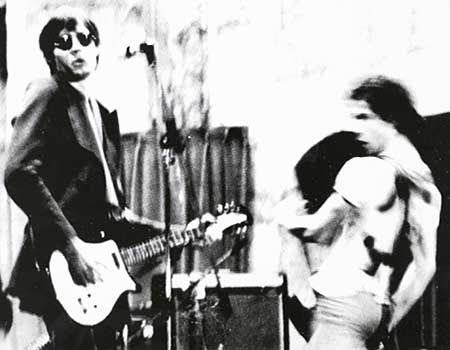Haitian Rock
Haiti is not known for rock. With musical monolith genres like zouk-love, konpa, and kadans, the impressive musical space was already crowded on the original island. Nonetheless, the attitude of rebellion, truth-seeking, and fun, coupled with the sound that this kind of music embodies worldwide struck a chord with young people in Haiti just as it did everywhere in the world – and, inspired by The Beatles like so many before them, rock and roll sprouted up. This movement began in the early 1960s as young people formed ye-ye bands.

Ye-ye bands were namely a European phenomenon, most popular in powerhouse nations France, Spain, and Italy. The name is derived from the words “yeah! yeah!,” common in countless pieces by prominent popular musicians but most notably in The Beatles’ “She Loves You.” When this hit peaked at number one in American households, many upper-class Haitians heard the new kind of sound via their access to high-frequency radio. Liking it and looking to emulate what they had heard, small groups bought electric guitars and (to the horrified realization of older members of society) started creating hip Haitian tunes.
Ye-ye groups did not last particularly long in Haiti; surrounded by such rich Caribbean styles, it was only a matter of time before these groups chose to incorporate konpa into their sound. After this rebranding and fusion of style, the taxonomy of Haitian rock shifted into what is now known as mini jazz. Ye-ye music (and its fathers Haitian rock) serve as two of the undeniable backbones of historic and modern mini jazz music.
Rock Kreyòl
After the assimilation into mini-djaz, heavier music in Haiti dissolved for several decades. Around 2011, a new artist by the name of Yohann Doré entered the Haitian music scene, bringing with him a punk and metal fusion sound with lyrics in Creole. He coined the new genre “rock Kreyòl,” different from the briefer rock and roll past in the country. In interviews, Doré has emphasized the importance of non-violent lyrics that are in the native tongue in order to dispel misconceptions. He states that his music is an emotional catalyst through which listeners (particularly teenagers) can express themselves. Further, the lyrics that Doré drafts are said to be highly personal, each with a distinct (and often tragic) background story.
As Yohann Doré’s fan base is multiplying exponentially and his story is spreading throughout Haiti’s music scene, there will no doubt be a growing interest in rock Kreyòl and the Haitian scene. As new bands pop up and venues are open, one looks forward to the continued proliferation and diversification of art that is present throughout the island and the neighboring Caribbean states. At first, hip hop struggled to be embraced, as this new Haitian genre is now; over time, though, it will grow to be accepted and celebrated.
